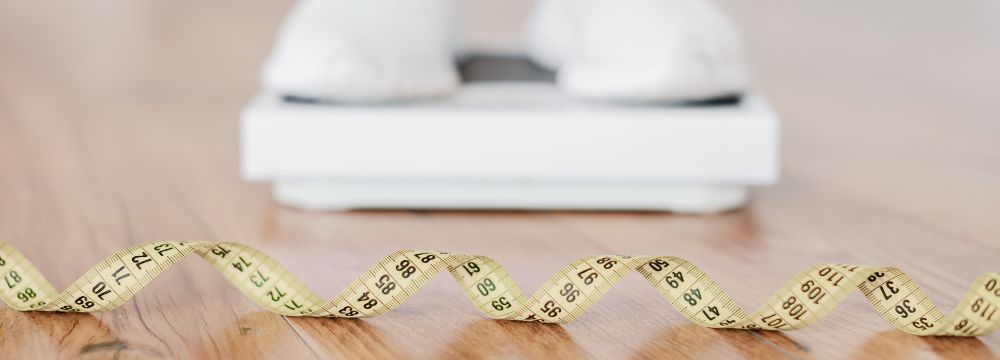
Cross-addiction, also called transfer addiction, occurs when an individual swaps one of their addictions for addiction to a different substance or behavior. Say, for example, an alcoholic can stop drinking, but they do not treat the underlying causes of their addiction. Then, after a time, the alcoholic could become addicted to a street drug they began using to cope with their underlying emotional issues. That would be a clean-cut example of cross-addiction. This person moved the addictive behavior from one place to another – from alcohol to drugs.
This transference of addiction from one target to another is possible in people who have bariatric surgery. This means they are medically treating their body by getting surgery but are not psychologically treating the root cause of their food addiction. This leads them to replace food with another harmful substance, often alcohol, or harmful behavior, like problem gambling.
We also know that individuals who experienced an onset of obesity before turning five score at the highest levels on the Addiction Scale. This does not mean you are doomed to face addiction down the road. Read on to learn more about cross-addiction and why a multidisciplinary team approach, like the one we practice here at MASJax, will give you the best chance of success with your bariatric surgery.
Food Addiction and Stress
Chronic overeating and food addiction are common factors of obesity in many bariatric surgery patients. For many, food addiction is a coping mechanism for dealing with lifestyle stress or past trauma. Some bariatric patients have encountered trouble by thinking that getting surgery will resolve their urge to eat compulsively. Following surgery, with the stomach’s capacity significantly reduced, it is sometimes easier to stop compulsively eating simply because there is nowhere for the food to go. But that only solves the eating part of the equation – not the compulsion.
Addiction Transfer
When the untreated compulsive behavior is deprived of its source of relief, in this case, food, it finds another path. Changes in the brain impact mood and serotonin production, which can trigger the body to crave sugar and other carbohydrates, which are known to boost serotonin, thereby improving mood briefly. Post-op, when dietary options are limited, patients can no longer turn to carbs and sugar for that serotonin boost. They are forced to look for something else to provide that quick burst of feel-good chemicals.
Addiction can cross over to just about anything – alcohol, drugs, gambling, shopping, the options are infinite. To compound the issue, obese or overweight people who have recently gone through bariatric surgery are particularly susceptible to substance abuse because their dopamine systems are already blunted, making any jump in dopamine that much more euphoric.
Here are some ways to know if your new behavior is more than a passing interest and has evolved into a full-blown cross-addiction:
- Your tolerance builds up – you need more and more of it to feel satisfied.
- You want to use the substance or engage in the behavior less but can’t seem to make yourself dial back.
- It is getting in the way of your responsibilities or relationships with others.
- You feel like you need to hide the substance or behavior.
- It is the primary source of happiness, relief, or satisfaction in your life.
The Dangers of Alcohol Consumption
The most common cross-addiction bariatric surgeons will warn you about his alcoholism. For several reasons,
- Alcohol is accessible
- It can be inexpensive
- It provides stress relief
- Many forms of alcohol won’t uncomfortably fill up a recently-downsized stomach.
In addition to the dangers already presented by excessive drinking in any individual, bariatric surgery patients have one more to worry about: alcohol packs a much bigger punch for those who have undergone bariatric surgery. In one survey, 90 percent of bariatric patients reported a higher sensitivity to alcohol post-surgery versus prior. It takes significantly less alcohol after surgery than before for almost all bariatric patients to feel the same effects. Some people may read this and think, “great! It’ll save loads of money on wine!” But the real impact is much more sinister than a slashed bar tab.
Studies have found that bariatric surgery alters how the body absorbs and metabolizes alcohol, significantly increasing alcohol sensitivity. There are a few reasons for this. Alcohol is absorbed into your bloodstream primarily through your intestines. So the more time your cocktails spend sitting in your stomach, the less they will be absorbed and dissipated. When you suddenly don’t have that same amount of real estate for your alcohol, it will enter the bloodstream more quickly. That first defense is therefore compromised, sometimes by up to 85 percent. This results in you being tipsier much more rapidly.
We all know from high school health classes that food slows alcohol absorption. No surprise here, but if your stomach can hold a mere fraction of the food it used to be able to have, it is not going to be very helpful to you in filtering out that alcohol.
When it comes to metabolizing alcohol, bariatric patients face another speed bump. After your surgery, particularly during the rapid weight-loss period, your body’s metabolic system goes haywire trying to find its new normal. Your body will take longer to metabolize the alcohol you put into it, meaning it has even more time inside your body to make its way into your bloodstream.
These aggravating factors mean that alcohol will have a more substantial effect, increasing the euphoria experienced by consuming it and making alcohol inherently more addictive.
How to Protect Yourself
First, know that the health and safety of our patients before, during, and after surgery is our number one priority. We do everything we can to help you become healthier and stay that way. Therefore caring for our patient’s emotional and psychological health is a vital part of our process.
Educate yourself. Take advantage of our preoperative services and highly experienced and knowledgeable medical team. We can answer any question you have, so don’t be afraid to speak up and ask. It is much better to learn about the connection between addiction and bariatric surgery through academic research than through firsthand experience, so we encourage you to read, read, read. We can point you in the right direction if you’d like help finding a good place to start.
Connect. It is often said that connection is the opposite of addiction, and we find this true. Take advantage of the support groups, forums, and group chats available. Make friends with people in your preoperative classes. Stay in touch with these people after the scars have faded and the pants size has dropped. Recovery doesn’t just stop when you walk out of our doors.
You should also make a point to stay connected with your loved ones if you are able. They will be critical pre-op and post-op, particularly in your early stages of recovery. They will also be the first people to spot any concerning behavior if you start falling into a cross-addiction.
Ask for help. Take advantage of your postoperative services. We provide them for a reason! We are here to support you for the long haul. If you are struggling with something, be honest with yourself and your medical team so that we can address it promptly. In your pre-op nutrition classes, don’t shy away from the discussion when we talk about why we discourage alcohol consumption after surgery in the same way we discourage the consumption of high amounts of sugar and fat.
It can be a smart move to enlist the help of other professionals. Therapy is a beautiful tool for all people, no matter what their life holds, but it also is beneficial for people who have addictive behaviors or are at high risk of developing them. Therapists specializing in addiction can be vital in spotting warning signs and helping to intervene before you get into a sticky spot with transfer addiction.
Research to find a therapist who works well for you, and don’t be afraid to ask your medical team for recommendations. Start this work now, before surgery. Research has shown a link between regressive coping strategies, like compulsive eating, before surgery and a transfer addiction after surgery. The more work you do on treating the underlying issues behind compulsive eating before surgery, the more likely you will avoid a cross-addiction after surgery. Counseling before and after surgery is one of the most important things you can do to ensure success in your weight loss goals.
Addiction is scary but armed with knowledge, community support, and our team of experts, you can face it. Call us today to discuss if bariatric surgery is right for you and how our team can help you.
Sources
- https://www.obesityaction.org/community/news/bariatric-surgery/transfer-addiction-following-bariatric-surgery/
- https://bariatrictimes.com/transfer-of-addiction-and-considerations-for-preventive-measures-in-bariatric-surgery-part-ii/
- https://bariatrictimes.com/alcohol-and-the-gastric-bypass-patient/\









